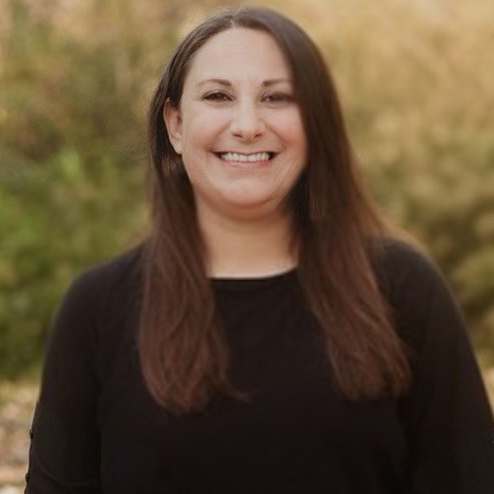
Associate Professor of Psychology Marisa Beeble, Ph.D., is the recipient of Russell Sage College’s 2024 Susan Warren Beatty Faculty Award for Excellence in Research. She was honored for her inquiries into the lesser-studied aspects of intimate partner violence against women.
“Much attention is given to the well-known aspects of intimate partner abuse, including physical violence, psychological abuse, and sexual assault. However, we know from survivors and service providers that it encompasses much more, including coercive forms of control and entrapment,” said Beeble. “Economic abuse is one such mechanism used by assailants to maintain power and control over their partners.”
Examples of economic abuse include securing credit or a loan in a partner’s name with or without their knowledge, taking control of a partner’s paycheck, or preventing a partner from working.
“Another largely understudied area of intimate partner violence against women is the role that abusive partners play in their respective survivor’s justice system involvement,” she continued. For example, when law enforcement investigates a physical altercation, “some perpetrators are able to manipulate officers and depict the victim as a primary aggressor.”
Beeble’s list of contributions is impressive. In partnership with researchers at Michigan State University, she was the statistician on a recent National Science Foundation-supported study investigating debt as a mechanism of control within marriage. She previously worked with the developer of the Scale of Economic Abuse, the first comprehensive measure to exist globally, to verify the scale’s accuracy and reliability.
The scale includes a list of financially abusive behaviors like “Take your paycheck,” and is used by advocates and service providers to assess how often survivors are on the receiving end of such behaviors on a continuum from “Never” to “Very Often.”
That partnership led to a new collaboration with a professor at the University of Hormozgan to test the Scale of Economic Abuse for use in Iran. “Our successful validation of this instrument with Iranian women has come at an opportune time to equip women’s shelters and judicial authorities with a valid and reliable tool to assess this form of intimate partner violence, assist women in escaping violence, and hold perpetrators accountable,” Beeble said.
Her CV lists more than a dozen peer-reviewed articles and national presentations from just the past five years. These include a complex statistical analysis of arrest outcomes in more than 300,000 domestic violence incidents nationally in Criminal Justice Review and a study of 160 women in county jails with prior arrests to identify factors related to their return to jail, in Women & Criminal Justice.
Beeble teaches in RSC’s M.A. in Mental Health Counseling and Community Psychology, B.S. in Psychology, and B.S. in Criminal Justice, Law, and Behavioral Science programs. She frequently collaborates with RSC colleague Janel Leone, Ph.D., and involves students in her research.
“I’ve taken students in the jails with me to interview women. I’ve had students work with me on data entry, analyses, and in some cases, publishing. For students who have an interest in research, it’s such a valuable experience to be able to be involved in collecting data and to see it through to a professional publication.”
She’s encouraged that the type of research she conducts is making a difference.
“Understanding the dynamics of a DV call to police helps us to respond more appropriately,” she said. “We now see law enforcement agencies partnering with DV organizations to respond to calls. It’s an improvement over the way things were done in the past. It’s more empowering to victims and less likely to end up in a victim’s arrest.”
And, as a colleague noted in a letter supporting Beeble’s nomination for the Beatty award, her activities on behalf of survivors of intimate partner violence and incarcerated women go beyond publications and presentations. When Beeble learned that a jail where she conducted interviews for her studies regularly released women from custody without any resources, she arranged a transportation fund and secured a grant for a manual to assist in planning for community reentry. That manual is now distributed across three Albany-area jails.
“It’s easy to get caught up in the study details,” said Beeble, “but we must remember that there are real lives being impacted. The priority must be on identifying solutions.”

